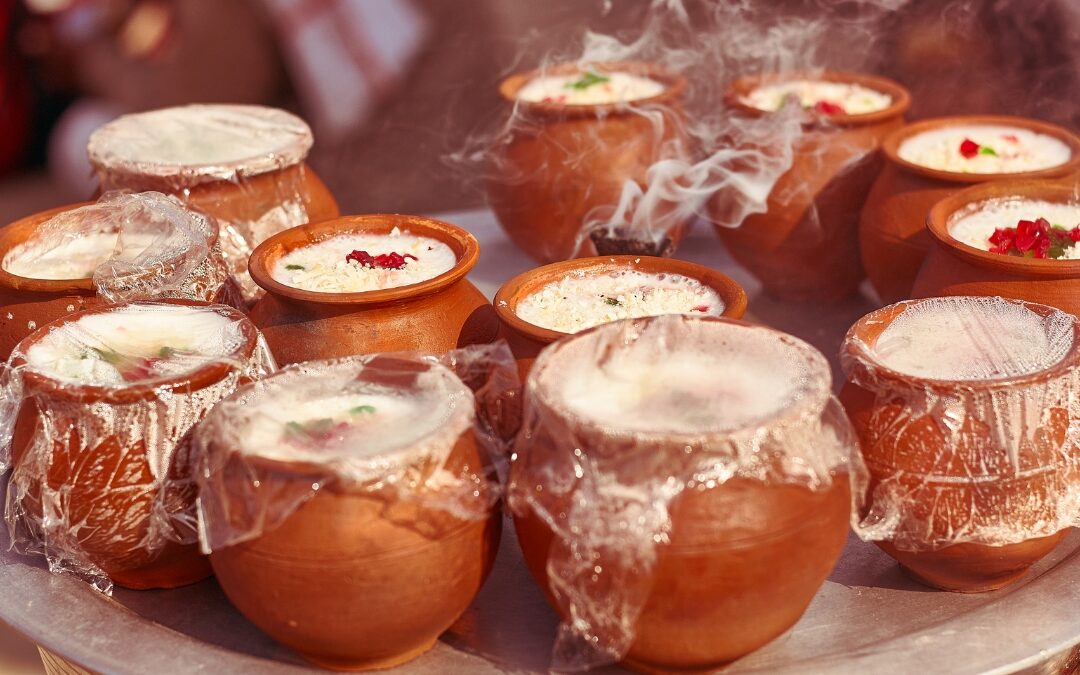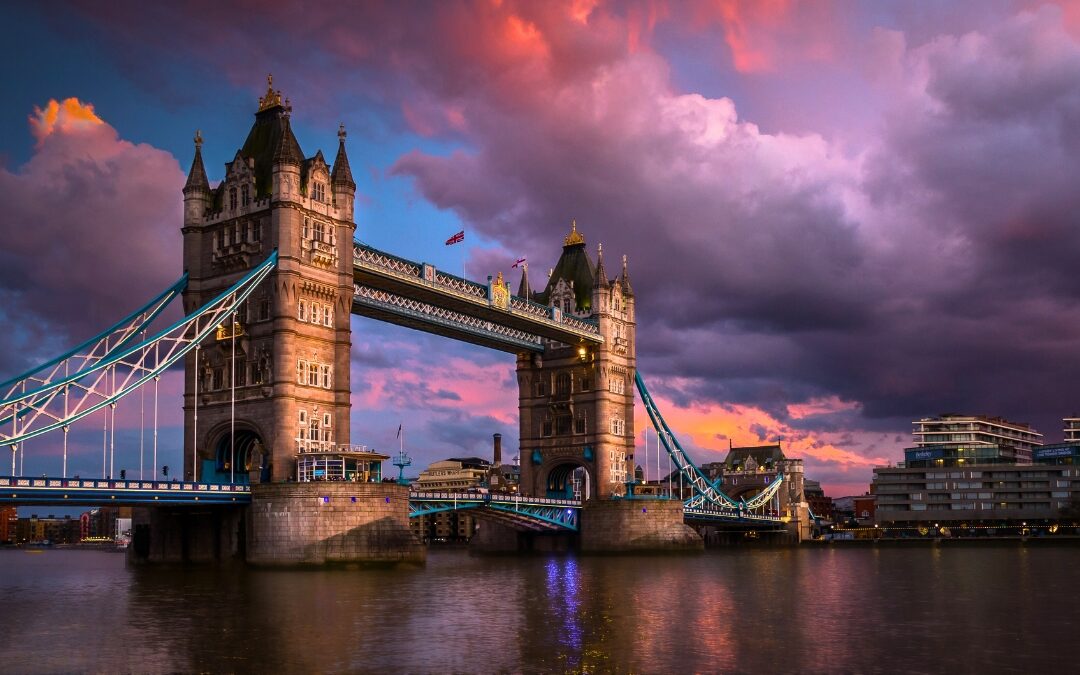
by Soniya Basu | Apr 18, 2025 | Cultural Integration, Culture & Community
(Your Indian-friendly guide to one of Britain’s most meaningful public holidays)
If you’re a student, professional, or family new to the UK and wondering why everything is closed this Friday, it is due to Good Friday — one of the most significant Christian holidays observed across the UK.
So here’s a quick, simple guide to Good Friday — what it means, how it’s marked in British society, and why it’s good to know (even if you don’t celebrate it).
🕊️ What is Good Friday?
Good Friday is a holiday observed on the Friday before Easter Sunday, part of Holy Week. It commemorates the crucifixion of Jesus Christ — a moment of sacrifice and spiritual significance in Christian faith.
While it’s a quiet and reflective day, it’s called “Good” because it’s seen as a day that brought spiritual good — symbolizing forgiveness, hope, and renewal.
For newcomers from India, where religious holidays are full of energy, Good Friday in the UK might feel calmer — but it’s a meaningful pause in British life.
📍 How is Good Friday Observed in the UK?
In cities like Edinburgh, Glasgow, Manchester, or London, Good Friday is widely observed — but you won’t find loud festivals. Instead, it’s more about stillness, reflection, and spiritual quiet.
Here’s what typically happens:
- 🛐 Church Services: Many locals attend special Good Friday prayers. These are open to everyone — and can be a great cultural experience if you’re curious.
- 🕊️ Public Holiday: It’s a bank holiday across the UK — most offices, universities, and government services are closed.
🍞 What’s with the Hot Cross Buns?
If you see spiced buns with crosses in every Tesco or Asda, don’t be confused — it’s a British tradition! These are hot cross buns, traditionally eaten on Good Friday.
Symbolising the crucifixion (with the cross on top), they’ve become a must-have seasonal treat. Try them toasted with butter — your tea time will thank you!
🧠 Too Long? Read This:
- Good Friday is a major Christian holiday, part of the Easter weekend
- It’s a public (bank) holiday — most places shut or operate on reduced hours
- It’s about reflection, not celebration
- Hot cross buns are a classic Good Friday snack
- A perfect time for a mental reset or short trip with family or friends
💬 Final Thought of Good Friday from ScottishIndian
At ScottishIndian.com, we’re here to help Indian newcomers in the UK not just survive, but thrive — culturally, practically, and socially. Whether it’s Diwali or Good Friday, knowing what matters in British society helps you feel more connected.
So go ahead, enjoy your long weekend, try a bun, and maybe take a moment to reflect — the British way.
🔔 Want more guides like this? Bookmark ScottishIndian.com for everything from cultural tips to visa help, student life, and community events in the UK.

by Soniya Basu | Apr 10, 2025 | Cultural Integration, Culture & Community
(Because “you alright?” isn’t always a question)
Moving to the UK is exciting, but let’s be honest — British English can feel like a whole new language. You walk into class and someone says “You alright?” and you freeze like… do I look unwell? 😅
Whether you’re here to study, work, or explore, mastering everyday British lingo is a game-changer. Not only will you blend in faster, but you’ll also finally understand what your British mates are actually saying.
Let’s break down the most common UK slang and expressions that’ll help you survive and thrive in British society.
🗣️ Everyday Expressions That’ll Confuse You (Until They Don’t)
1. “You alright?”
Don’t panic. It just means “Hey, how are you?” You can reply with “Yeah, you?” — no deep medical explanation needed.
2. “Cheers!”
This one’s a multitasker. It means thanks, bye, or even nice one. Use it at the shop, in emails, or when someone hands you anything.
3. “Fancy a cuppa?”
Translation: Do you want some tea? (Sometimes could be coffee)
4. “I’m knackered.”
Means: I’m exhausted. Like post-exam, 3 a.m. kind of tired.
5. “Let’s have a proper chat.”
Get ready — this one’s serious. “Proper” in the UK = real, deep, legit.
😂 Funny British Lingo You’ll Learn to Love
1. “That’s peng!”
Used for something (or someone) that looks really good. Like: “That butter chicken is peng!”
2. “Bare”
Means a lot of. “It was bare cold yesterday” = very cold.
3. “Peak”
Bad situation. “Missed the last train? That’s peak, mate.”
4. “Chuffed”
Feeling super happy or proud. “Got a 2:1 in your assignment? Chuffed for you!”
5. “Waffle”
Not the food — this means talking too much without saying anything useful. Professors sometimes do this, not gonna lie.
🧠 Bonus: British Humour = Sarcasm Central
Brits love irony, understatement, and dry sarcasm. So if someone says, “Great weather, innit?” while it’s pouring outside — they’re joking.
The key is not taking things too literally. Smile, nod, maybe throw in a cheeky “innit?” if you’re feeling confident.
📺 How to Learn Slang Fast (British Lingo Without Cramming)
- Watch British shows like Derry Girls, The Inbetweeners, or even Great British Bake Off
- Follow UK creators on TikTok or Insta for authentic vibes
- Ask your British friends what something means — they’ll love teaching you (and probably laugh a little too)
- Practice! Use the words in context, and don’t stress about messing up — it’s all part of the fun.
British slang = a crash course in culture. Learn the basics, have a laugh, and you’ll sound like a local in no time. From “peng” food to “chuffed” vibes, it’s all about speaking the language of the land — but make it your own.
Cheers mate!! 🍻

by Soniya Basu | Apr 10, 2025 | Cultural Integration, Culture & Community
(Because chapatis and chai are more than just carbs and caffeine)
Moving abroad is exciting — new cities, new people, new vibes. But let’s be honest, it also hits different when the craving for your mum’s biryani kicks in or you realize nobody gets your Bollywood references 😭.
If you’re living in the UK (or anywhere outside India), staying connected to your roots can feel tough at times. But here’s the good news: you don’t have to choose between thriving abroad and holding on to your culture. You can do both. ✨
Here’s your ultimate guide to staying connected to Indian culture while living abroad — Let’s gooo! 🚀
🍛 1. Cook the Comfort Food
Let’s start with the heart (and stomach) of every desi household: the kitchen.
Don’t worry if you’re not a master chef. Start small:
- Learn how to make dal, khiccdhi, maggi, or poha — they’re easy and comforting.
- Stock up on spices from local Indian/Asian stores (or order online).
- Share a home-cooked meal with friends!
💡 Pro tip: YouTube is your bestie — there’s a tutorial for everything.
📺 2. Stream Desi Content
Binge-watching = bonding with your Indian culture.
- Watch Indian movies, series, and stand-up comedy on Netflix, Prime, Hotstar, or YouTube.
- Listen to desi podcasts, regional folk music, or Bollywood bangers on Spotify.
- Follow Indian creators on Instagram and TikTok for relatable reels and laughs.
🎉 3. Celebrate Festivals Loud and Proud Indian Culture
Diwali, Holi, Eid, Pongal, Navratri — you name it, Indian festivals abroad are big and beautiful.
- Join Indian student societies or cultural groups at your university.
- Attend public events — cities like London, Leicester, and Glasgow go all out!
- Host a small get-together with desi food, music, and some diyas or colors.
💡 Homesick hack: Wear ethnic clothes and FaceTime your fam during festivals — the connection hits differently.
🛕 4. Visit Local Temples or Cultural Centers
Even if you’re not super religious, visiting a temple or cultural center can feel grounding. It’s a safe space to meet people, hear familiar languages, and take part in traditional events.
Bonus: You’ll usually find delicious prasad or community meals too 🍛🙏
💬 5. Speak Your Language, Share Your Stories Indian Culture
Don’t lose your mother tongue — speak it with fellow desis, or even teach your international friends a few lines.
You can also start a blog, vlog, or Instagram page sharing your cultural experiences. You’d be surprised how many people relate to “I miss amma’s rasam and dad’s dad-jokes.”
Staying connected to Indian culture while living abroad isn’t hard — it just takes intention. Cook the food, celebrate the festivals, wear the clothes, blast the music, and embrace your identity proudly.
You’re not just living abroad, you’re taking your roots with you — and that’s powerful. 🌱❤️
Want updates on desi events in the UK? Follow scottishindian.com for festival alerts, food spots, and community vibes that feel like home away from home.

by Soniya Basu | Apr 10, 2025 | Cultural Integration, Culture & Community
The United Kingdom is a culturally rich and diverse country with a fascinating blend of traditions, history, and modernity. For newcomers, understanding the nuances of UK culture can help you integrate, form connections, and enjoy your time in this unique part of the world. From social etiquette to public behaviour, this comprehensive guide covers everything you need to know about UK culture.
1. British Politeness: A National Trait
One of the most noticeable aspects of UK culture is the emphasis on politeness and manners. British people are often understated in their communication, valuing courtesy and respect in everyday interactions.
Key Features of British Politeness:
- Saying “Please” and “Thank You”: These phrases are essential and are used frequently, even for small gestures.
- Apologizing: Brits often say “sorry” as a way of maintaining harmony, even when not at fault.
- Queuing (Standing in Line): Respect for queues is deeply ingrained in UK culture. Cutting in line is considered rude.
Pro Tip: If you’re unsure of how to approach a situation, err on the side of politeness. A friendly smile and a “thank you” go a long way.
2. Punctuality is Key
Time management is highly valued in the UK. Whether it’s a meeting, social gathering, or public transport, punctuality is expected.
- For Appointments: Arrive on time or even a few minutes early. Being late without prior notice is considered disrespectful.
- Public Transport: Trains and buses generally run on schedule, so always plan your journey accordingly.
Pro Tip: Use apps like Citymapper or National Rail to navigate public transport and ensure you’re on time.
3. Pub Culture: The Social Hub of the UK
Pubs (short for “public houses”) are an integral part of British culture. They are not just places to drink but also to socialize, relax, and enjoy traditional food.
Key Aspects of Pub Culture:
- Order at the Bar: Unlike restaurants, you order your drinks and food at the bar.
- Round System: If you’re with friends, it’s customary to take turns buying rounds of drinks.
- Family-Friendly: Many pubs are family-friendly during the day and serve hearty meals like fish and chips or Sunday roasts.
Pro Tip: If you’re unsure of what to drink, try a local beer or cider. Popular options include Fuller’s, Guinness and Strongbow.
4. Humour: Dry and Sarcastic
British humour can be difficult to grasp at first. It often relies on irony, sarcasm, and understatement. While it may seem blunt or self-deprecating, humour is an important part of daily life.
Examples of British Humour:
- Irony: Saying the opposite of what you mean in a humorous way.
- Self-Deprecation: Making fun of oneself, often as a way to break the ice.
Pro Tip: Don’t take sarcastic comments personally—they’re often meant to be lighthearted. Watching British comedies like The Office (UK) or Blackadder can help you understand this humor style.
5. The Love for Tea
Tea is more than just a beverage in the UK—it’s a cultural institution. Brits drink tea at all times of the day, often accompanied by biscuits or cake.
- Types of Tea: The most common is EnglishTetley Original Tea Bags 40 Pack, served with milk and sugar.
- Tea Breaks: “Tea time” doesn’t necessarily mean afternoon tea with scones; it can simply refer to a break to relax with a cup of tea.
Pro Tip: If invited for tea, don’t decline—it’s often seen as a gesture of hospitality.
6. Celebrations and Holidays
The UK has several unique holidays and traditions. Familiarizing yourself with these can help you feel more connected to the culture.
Key Celebrations:
- Christmas: The most widely celebrated holiday, marked by festive markets, decorations, and family gatherings.
- Bonfire Night (November 5): Celebrates the thwarting of the Gunpowder Plot with fireworks and bonfires.
- Easter: Involves religious services, chocolate eggs, and traditional foods like hot cross buns.
Pro Tip: Participating in these celebrations is a great way to immerse yourself in UK culture. Check local event listings on platforms like Time Out.
7. Sports and Football Obsession
Sport is a cornerstone of UK culture, with football (soccer) being the most popular. Major football teams like Manchester United, Arsenal, and Liverpool have fan bases worldwide.
Other Popular Sports:
- Cricket: Especially popular during the summer months.
- Rugby: With passionate followings, especially in Wales.
- Tennis: The Wimbledon Championship is a prestigious annual event.
Pro Tip: Attending a live sports event, such as a football match or a rugby game, can be an exhilarating experience. Tickets are available on platforms like StubHub.
8. Respect for Privacy and Personal Space
Brits value their privacy and personal space. While they are polite and friendly, they may seem reserved initially.
Tips for Respecting Boundaries:
- Avoid overly personal questions early in a conversation.
- Maintain a comfortable physical distance during interactions.
Pro Tip: Start conversations with neutral topics like the weather—a classic British favourite!
9. Sustainable Living and Environmental Awareness
Sustainability is a growing focus in the UK. Recycling, reducing waste, and supporting local businesses are common practices.
Tips for Sustainable Living in the UK:
- Use reusable shopping bags; most stores charge for plastic bags.
- Sort your waste for recycling—bins are usually color-coded.
- Take advantage of public transport to reduce your carbon footprint.
Adjusting to UK culture as a newcomer can be both exciting and enriching. From mastering the art of politeness to enjoying pub culture and celebrating local traditions, immersing yourself in the country’s way of life will make your experience truly rewarding. By understanding these cultural nuances, you’ll feel more at home and ready to embrace the UK’s unique charm.



